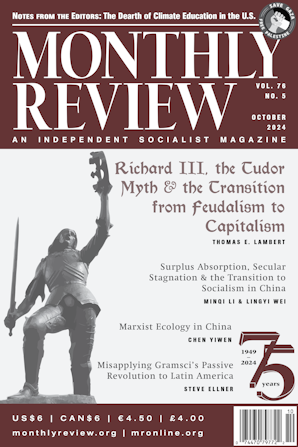Also in this issue
- October 2024 (Volume 76, Number 5)
- Richard III, the Tudor Myth, and the Transition from Feudalism to Capitalism
- Surplus Absorption, Secular Stagnation, and the Transition to Socialism: Contradictions of the U.S. and the Chinese Economies since 2000
- Applying/Misapplying Gramsci’s Passive Revolution to Latin America

